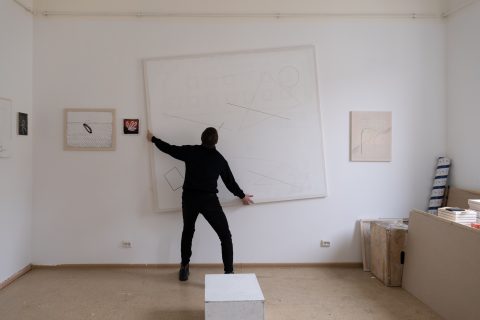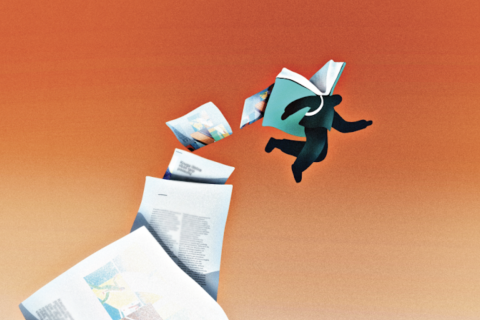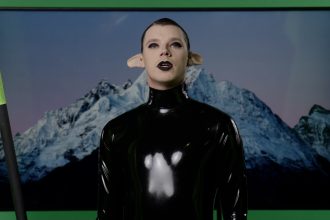I have been living in Kaunas for eight years and the gems hiding on every corner continue to regularly surprise me. Whether it’s a Kaukita cafe that has been operating for thirty years, which I accidentally discovered while taking Kauko Stairs, or Kavos kerai, which attracts customers with its freshly baked goods and delicious coffee and which I visited for the first time just a couple of weeks ago, despite passing by it every day.
I believe that now these pleasant discoveries will be even more frequent because I discovered Facts About Kaunas tours conducted by 15min journalist Karolina Stažytė. Last year Karolina led people in search of the great desires of humanity and introduced them to Vilties pharmacy’s history, the most photogenic yard, and the most unique houses of prayer of the New and Old Town. This year, Karolina promises to establish herself even more as a guide and look deeper into the important historical highlights of Kaunas.
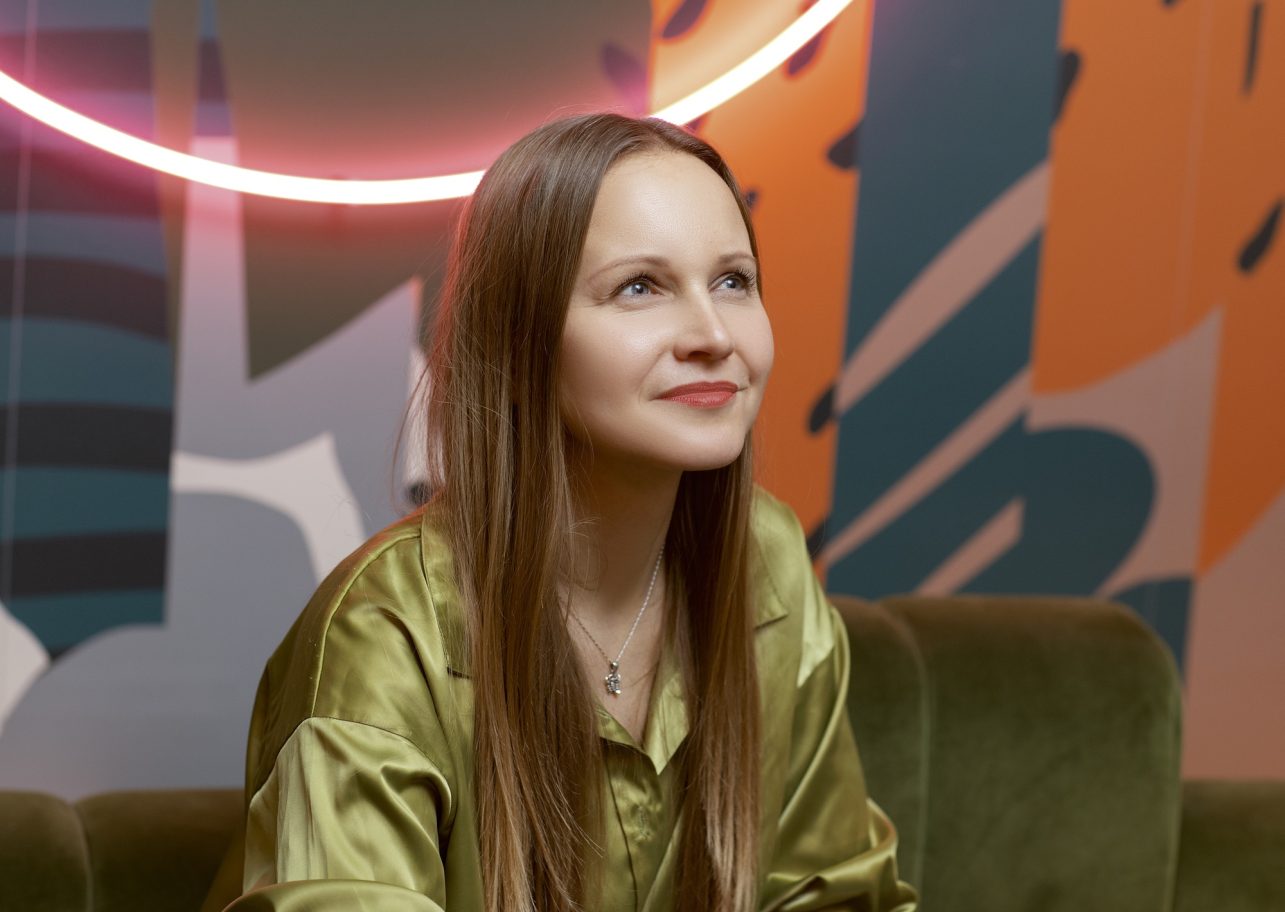
Karolina, apart from being a journalist and guide, what else should we know about you?
One of the most important things in my life is football. I grew up in the stadium, most of the men in my family are football players and coaches. Through football, I discovered both journalism and Kaunas, and everything fell into place. Travels are also important because they provided me, an introvert, with extroverted traits. Before the quarantine, I used to travel more, sometimes having up to eight flights a year. I also love first times. I could get a massage every day. And I also love food! When I travel, I always organize a food tour for myself. The whole mix of interests is topped by my main activities: writing and working as a guide, which, in my view, complement each other.
You are from Tauragė. You worked on Tauragė radio and a local newspaper. You later studied law and governance, but you never abandoned the media. How come?
I was a nerd at school and completed all the tasks that were expected from an exemplary student. I already liked to write at the time. I used to write about football for Tauragė’s newspapers for free. I am grateful to my Lithuanian language teacher, with whom we are still very good friends, for encouraging me to do this. I believe that my ability to write is her contribution since I did not study journalism in university.
When I graduated from school with the highest grades, my parents and teachers demanded that I choose to study law, economics, or medicine. I chose law because it is the closest to humanities of all the three, although at the time I was more interested in studying psychology. I studied and lived in Vilnius; however, I still did not feel at home in the capital despite having lived there for seven years. After my studies, I even received a job offer but I realized that both the city and the job were not for me.
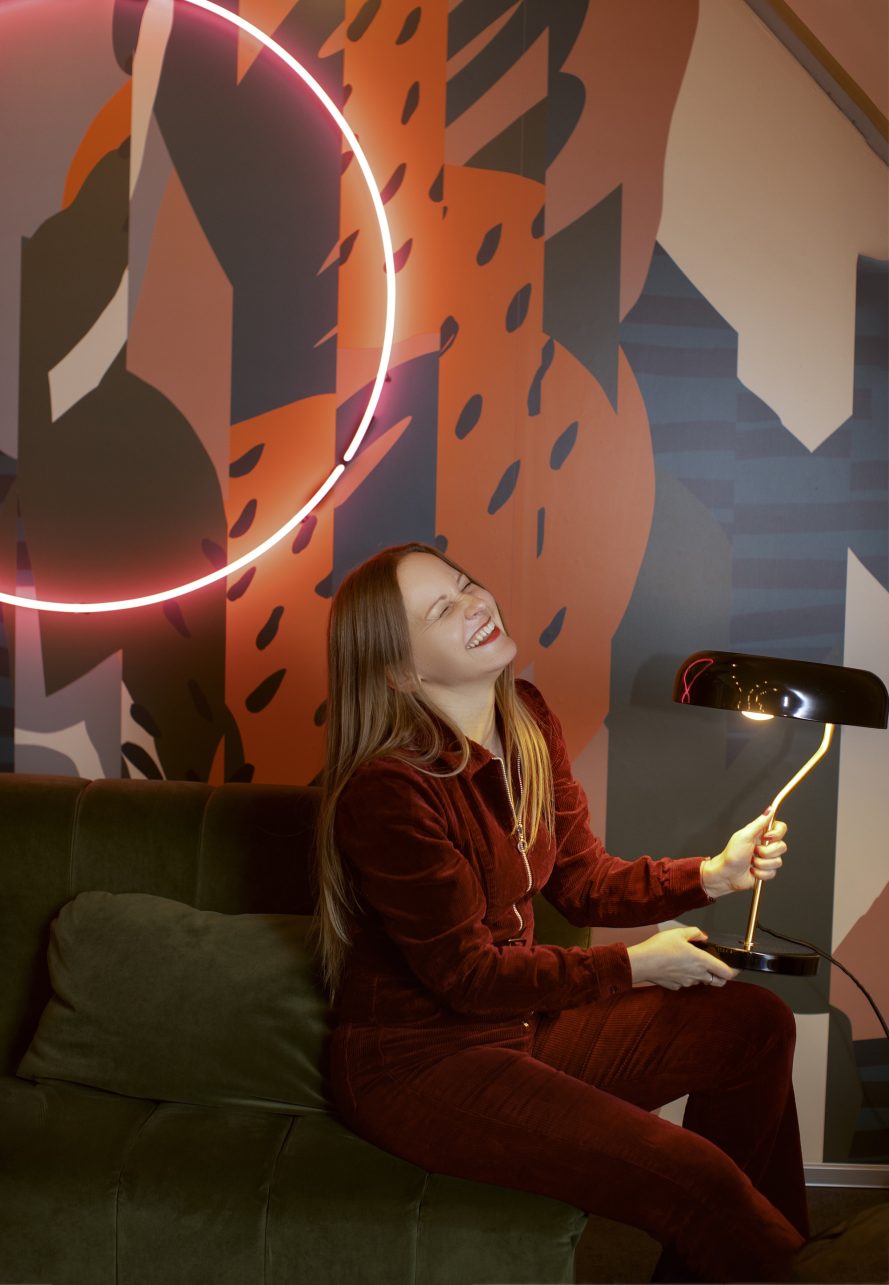
I returned to Tauragė. The plan was to go to England, but my life entered a very erratic period. A radio station was established in Tauragė, and I received an offer to host a show about football. That’s how we became the only father-daughter duo on air in Lithuania. My father and I had a radio show for three years and we have even received an award from the Lithuanian Football Federation. Then I got a job as a journalist in Tauragės kurjeris (the main newspaper of the region, ed.) and two sponsors for my radio show.
Soon, football again determined the direction of my life. The first football match between Lithuania and England took place in London in 2015 and I shared a photo of the purchased tickets on social media. After that a journalist from 15min contacted me. She wanted to talk about my enthusiasm for football and my radio show. As the match was approaching, Rimvydas Valatka, the editor-in-chief of 15min at the time, called and asked to prepare a report about it. Finally, I was invited to join the team in Vilnius, to work in the sports news department. At that time, I did not agree to the offer, because I did not want to return to the capital, but after some time I received an offer to join the Kaunas department, already as a journalist covering the city’s current affairs.
Was it easy to make your debut in Kaunas as a journalist? Did your colleagues accept you kindly?
I have heard that there is a bit of competition in Vilnius, and some people were cutthroat. In Kaunas, we all get along well, we have parties, and we also share information. I am happy that I was really lucky with my colleagues, some of them have even become close friends.
You have been living and working in Kaunas since September 2015. How have the topics you write about changed, do you still like variety, and do you have the ability to choose?
I would call myself a curious person, so I am very happy with my editor Raimundas Celencevičius, who gives me a lot of freedom and understands my weaknesses and strengths. The diversity of topics is very important to me. Sometimes, the morning starts with an interview with the mayor of Kaunas on some political topic, then during lunch, I am sent to the university, where I talk to the head of CERN about dark matter or the particle accelerator. After that, I go to court and prepare a text about a high-profile murder case, and I finish the evening by writing about the opening of a new restaurant. I am a current affairs journalist, but I have the opportunity to maintain balance and diversify the content by including uplifting articles about interesting personalities and places.
Of course, there are dark days in this job too. I recently filed a police report because I received a threat after publishing an article. At such moments, I try not to forget the good parts of this job: the opportunity to taste, see, and try something for the first time, because the door is often open for a journalist, and you can interview many interesting people.
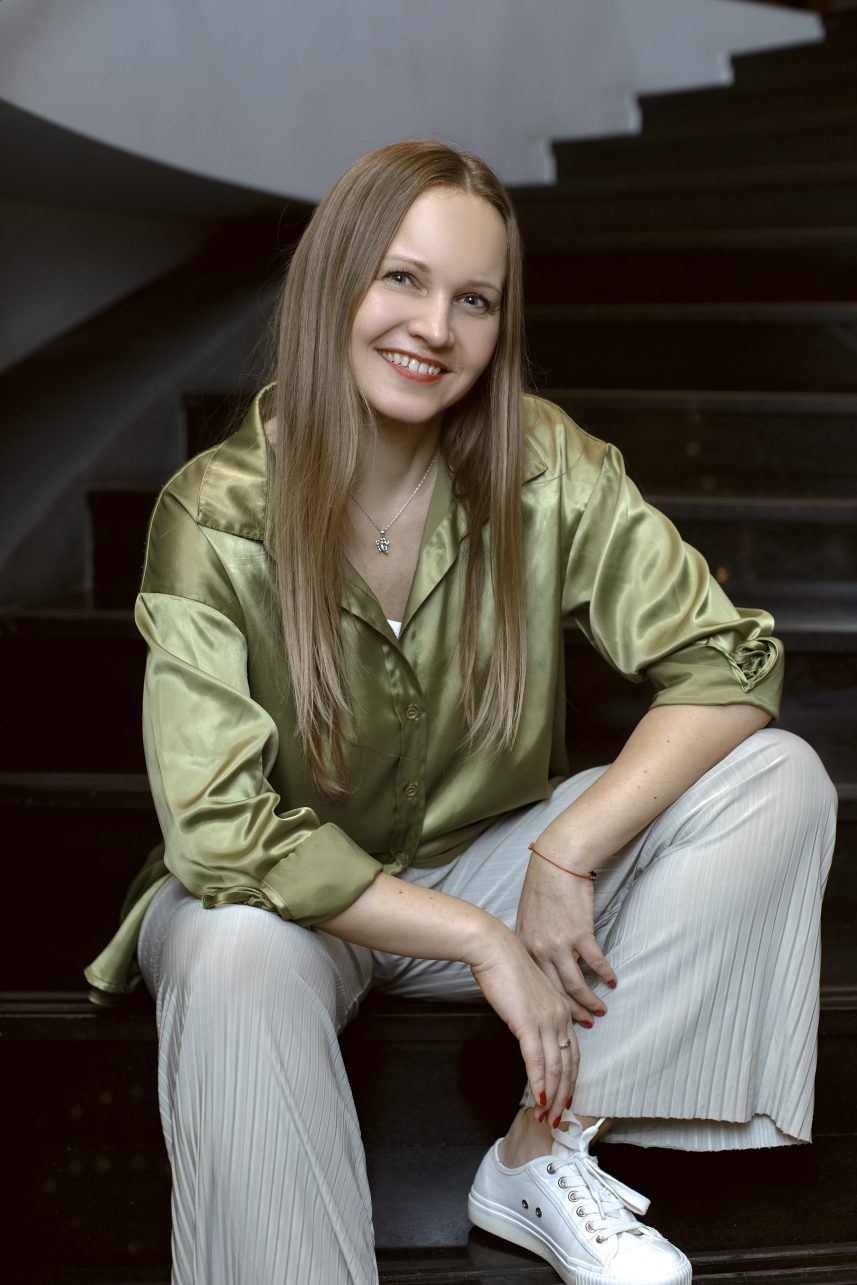
Now let’s talk about you becoming a guide. At the beginning of 2022, you completed Mūsų odisėja course for tour guides and people quickly started introducing you as a collector of first times. Where did the wish to become a tour guide come from?
While participating in tours I always observed how the guides communicate with people, what grabs their attention and what doesn’t. Another contributing factor was that before becoming a guide I took many guests around the city. It’s also thanks to journalism because I have accumulated a lot of knowledge about city spaces, buildings, and interesting people. When Mūsų odisėja’s offer reached me by chance, I took it immediately and completed the course for tour guides.
My first tour was rather interesting. The administrator did not stop the reservation in time, so more than 50 people showed up. It was quite cold, Kauno diena came to interview and film me. Some people brought a bouquet, and others brought gifts. There was so much going on that I felt like I was in some pleasant space. So, the beginning was good, I got warm feedback, but then I didn’t do anything for 5 months because I couldn’t find the time. I am very grateful to one big company in Kaunas, whose representative called me in the summer and asked me to organize a tour for its employees. It turns out that the head of the company attended my first tour. This prompted me to finally acquire an Individual activity under a business certificate and get started.
How did you manage to fit into the competitive environment?
Every month I meet a few course mates with whom I completed the guide course. We always choose a new restaurant or go to try out something fun. I cooperate with the founders of Gražinkime Kauną and Diana, who has worked as a guide in Kaunas for many years (Ekskursijos Kaune). There is no competition between us; other guides come to my tours, and I come to theirs.
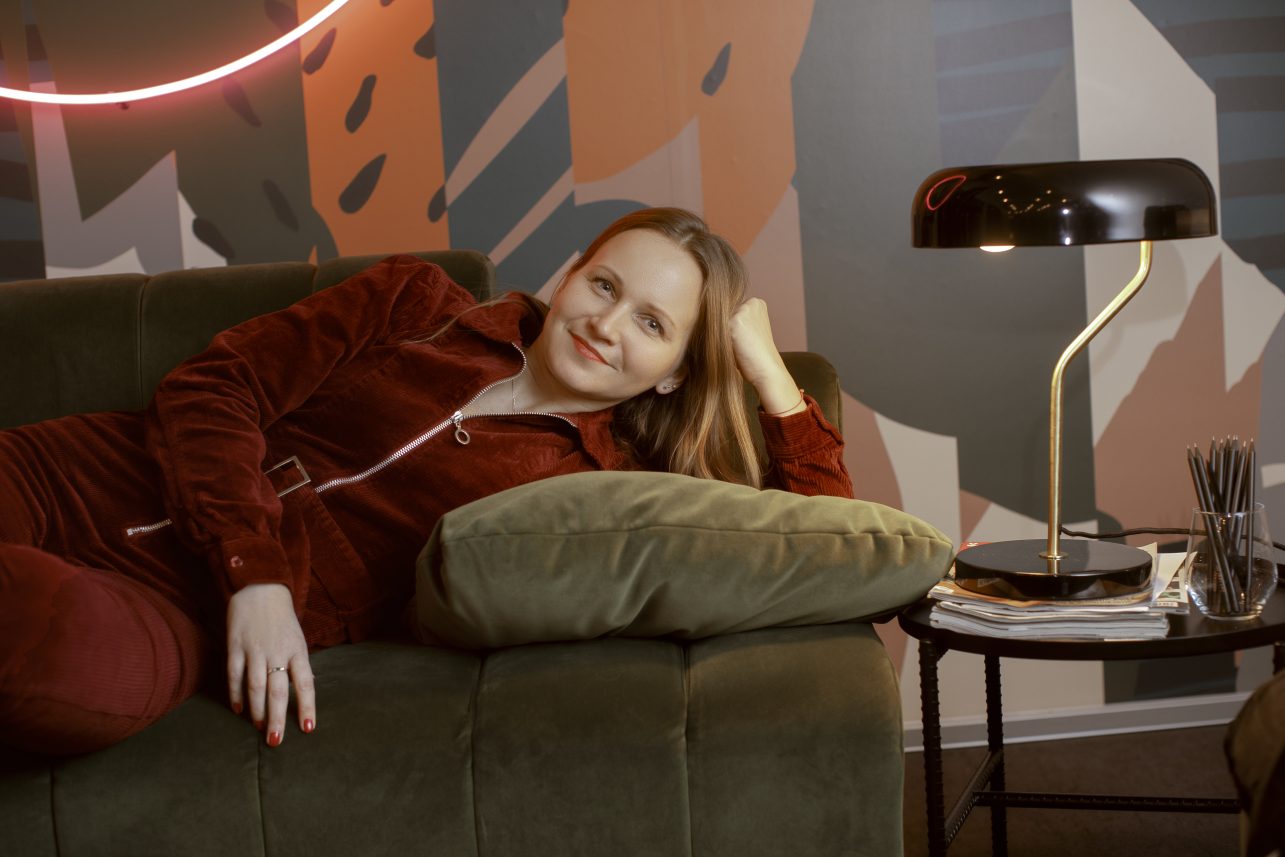
In my view, we all have different things that we focus on, and different people participating in our tours. We also carry out tours differently – some with humor, others focus on history. The tours I lead always have to have some food-related surprises. I like to treat people, and go inside the buildings, so the tours take longer. I will always remember one of my tourists from Suvalkija: a 92-year-old Bronius, who lives – if I remember correctly – 12 kilometers from Vilkaviškis. He rode a bicycle from his homestead to Vilkaviškis, boarded a bus, and arrived in Kaunas with the whole company, he spent the whole day here. 3.5 hour-long tour was only part of the whole plan. I found out that Bronius looks after a hundred rose gardens in Suvalkija, so I will go to interview him in spring.
What are your favorite spots in Kaunas?
I love the church of St. Gertrude, Viltis Pharmacy, Spurginė, Evangelical and Reformed Church. Also, one large work of art that a Courtyard Gallery is. It proves how much one person can do, and he is not even from Kaunas! Vytenis Jakas came to live in Kaunas and created the most photogenic courtyard in the city, attracting tons of tourists. If I had to choose the most important building in Kaunas, I think it would be the Darius and Girėnas Stadium. Everything in my life, as you probably noticed, is related to football.
From the stadium to the bus station or the Žalgiris Arena, where almost all major sports tournaments or concerts are organized. And let’s not forget the successful tourism projects like Art Deco and Amsterdam School museums, Vaižgantas’ apartment, and Zikaras’ home. How would someone not want to live here?
What tours can we expect in Kaunas in 2024?
I want to take my time and polish those rocks into diamonds. Now I have 5 tours and it seems to me that this is a sufficient number for the first year. In the upcoming year, I would like to show not only the beautiful face of Kaunas but also a darker, different one. From the journalistic point of view, I see that the most read reports are related to crimes, so I really want to touch on interwar period crimes. And of course, food tours, which is what I wanted to start with. Now I just wish to find time for all this next year.

